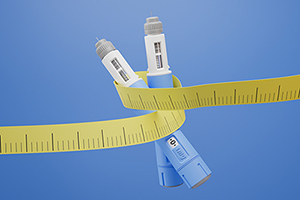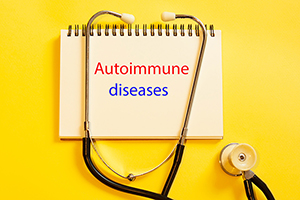



| By Dr. Ronald Hoffman
It’s no secret that many practitioners of mainstream medicine are not as well-versed in the benefits of supplements as one would hope. But sometimes, this deficit goes beyond lack of information all the way to misinformation.
Here are nine truths that many doctors still don’t know about supplement use:
 1) High dose vitamin D is NOT toxic. The way we were taught in med school, vitamin D was very toxic, and had to administered with care, never to exceed 400 International Units per day. More than that would result in calcinosis, or body-wide deposition of calcium, with catastrophic effects on joints, blood vessels, and kidneys. It’s only recently that the veil has been lifted and the medical community has come to recognize the essentiality of vitamin D, with its widespread benefits, not just for bone health, but also for the heart, brain, immune system, and even for cancer prevention. The RDA has been raised to 600 IU/day for children and adults up to 70, and those over 70 are now told to get 800 IU. But doctors still don’t appreciate that some people require more to fill their depleted vitamin D tanks. I routinely prescribe 2000-5000 IU/day and sometimes more, carefully monitoring D levels so as not to go too high. And while overzealous D supplementation without proper supervision can land a person in trouble, I’ve not seen any problems in the hundreds of patients I’ve cared for; many have enjoyed enormous benefits like dramatic relief of fibromyalgia pain, improved mood and focus, and freedom from frequent colds and flus.
1) High dose vitamin D is NOT toxic. The way we were taught in med school, vitamin D was very toxic, and had to administered with care, never to exceed 400 International Units per day. More than that would result in calcinosis, or body-wide deposition of calcium, with catastrophic effects on joints, blood vessels, and kidneys. It’s only recently that the veil has been lifted and the medical community has come to recognize the essentiality of vitamin D, with its widespread benefits, not just for bone health, but also for the heart, brain, immune system, and even for cancer prevention. The RDA has been raised to 600 IU/day for children and adults up to 70, and those over 70 are now told to get 800 IU. But doctors still don’t appreciate that some people require more to fill their depleted vitamin D tanks. I routinely prescribe 2000-5000 IU/day and sometimes more, carefully monitoring D levels so as not to go too high. And while overzealous D supplementation without proper supervision can land a person in trouble, I’ve not seen any problems in the hundreds of patients I’ve cared for; many have enjoyed enormous benefits like dramatic relief of fibromyalgia pain, improved mood and focus, and freedom from frequent colds and flus.
2) Vitamin K DOESN’T make your blood clot. The confusion stems from the cursory way we doctors were taught about vitamin K. K stands for “Koagulation,” the German word for coagulation. In the absence of sufficient vitamin K, our blood would not have the ability to clot, and we would hemorrhage. But the converse is not true: A surfeit of vitamin K will not cause our blood to curdle, and thus lead to strokes and heart attacks. In fact, vitamin K is precisely what many sufferers of atherosclerotic disease need more of, since it has been demonstrated to reduce arterial stiffness and retard the progression of circulatory problems. Even when patients are taking aspirin or other blood thinners like Xarelto or Pradaxa, they can still take vitamin K; the one exception is when patients are on Coumadin, whose effects are reversed by vitamin K.
3) Supplements CAN be taken before and after surgery. I wrote an entire article on this subject which you can read here. In fact, some of the very things that are supposedly verboten, like fish oil, said to create the potential for excess bleeding, may have very beneficial effects in certain surgical patients. Surgery is a stressful challenge to the body that actually calls for heightened intake of certain nutrients to forestall problems with immunity, circulation, and wound healing. And, while certain vitamins, minerals, or herbs must be avoided because of their impact on anesthesia, bleeding, liver or kidney function in some specific settings, most supplements are not only well-tolerated, they’re essential. Because it’s complicated, and requires knowledgeable consideration on a case-by-case basis, many doctors just tell patients to skip supplements altogether, thereby doing their surgical patients a disservice. I am often called upon to tailor patients’ supplement programs to give them only those which are beneficial.
4) Most supplements DON’T interfere with the efficacy of chemo or radiation for cancer. Just as with surgery, because of the potential for a few supplements to interfere with radiation or chemotherapy, oncologists often issue a blanket prohibition to their patients receiving conventional cancer care. While there are a few well-documented cases of vitamins, minerals, or herbs getting in the way of the efficacy of certain types of chemo or radiation, much of the concern is hypothetical. For instance, it is said that all antioxidants interfere with chemo and radiation, but there are many studies that support the use of certain antioxidants to enhance treatment effectiveness; moreover, antioxidants preferentially protect normal cells from collateral damage by potent drugs or X-rays. Here again, as in surgery, it’s complicated, and supplement regimens need to be customized to avoid inadvertently fueling cancer growth or vitiating conventional treatments. A useful resource for understanding these compatibilities is Lise Alschuler’s book, The Definitive Guide to Cancer.
5) You DON’T get all the nutrients you need from a “balanced diet.” Many doctors have an innate bias against supplements. They’re unfamiliar with them, and they reside in the shadowy world of the supplement aisle, not the PDR. We didn’t learn about supplements during our training, unless, like me, we went out of our way to acquire knowledge via specialized conferences, books, and webinars. Disparagingly, some doctors will tell their patients to ditch all those “worthless” pills and just eat a healthy diet consisting of plenty of fruits, vegetables, nuts, whole grains, lean meat, fish, and low-fat dairy products. While, of course, the right food sources make sense, it’s not as if supplement-takers aren’t conscientious eaters—on the contrary! Most doctors don’t accept the proposition that many people, especially those with challenging health issues or problematic genetics, need targeted supplementation to optimize their nutritional status. They view supplements merely as a hedge against malnutrition, rather than potent nutraceutical agents that can hold their own, in many cases, alongside pharmaceutical drugs. We tackled the skeptics in a recent podcast with Dr. Tom Guilliams.
6) There ARE plenty of studies. It’s been said: “When you’re not UP on it, you’re DOWN on it.” So it seems with physicians’ lack of familiarity with the vast body of scientific literature that substantiates the benefits of supplements. Many patients tell me that their doctors rebuff their questions about vitamins, minerals and herbs with the old saw: “But there aren’t any studies”. In fact, they are there in vast quantities for perusal and review, if only doctors would take the trouble to find them, which in this day and age should require no more than a mouse click or finger swipe. Unfortunately, studies about supplements that DO make it to the pages of those mainstream medical journals that doctors frequently read often highlight the failures or dangers of supplements, reinforcing the overall bias of conventional medicine.
7) A “one-a-day” vitamin is NOT all most people need to take. Many doctors accede to their patients’ requests for supplement advice by advising them to “just take a good multi.” Little thought goes into whether the multi provides optimal levels of key nutrients, is made from cheap artificial ingredients, or contains harmful additives like titanium dioxide, petroleum-derived food dyes, carnauba wax or cheap shellacs. It’s as if the one-a-day is a facile insurance policy, a one-stop-shop, to optimal nutrition. This is a far cry from careful analysis of a person’s nutritional status, their health challenges, and even genetic makeup, which now underlies the science of supplement prescribing.
8) Supplements AREN’T dangerous. Contrary to what is commonly claimed by orthodox physicians and frequently echoed in the press and by pro-regulatory politicians, supplements are NOT unregulated by the FDA. “You don’t know what you’re getting,” your health practitioner may argue. “At least with prescription drugs, they’re carefully policed by the FDA.” But they’re not telling the whole story. Notwithstanding that there are some unscrupulous players in the supplement marketplace who skirt the rules and misbrand their products, supplements are subject to stringent rules. FDA continuously monitors and inspects manufacturing facilities and mandates strict reporting and record keeping—known as GMPs (Good Manufacturing Practices). Supplement trade organizations promulgate rules that members must adhere to. And liability laws keep supplement manufacturers from inflicting harm. Your best hedge against danger is to stick with reputable, mainstream brands and rely on the advice of an expert nutritional practitioner who you trust to vet products on your behalf.
9) TUMS doesn’t build bone. In the heyday of the calcium-for-osteoporosis craze, some doctors used to recommend that patients sidestep more expensive, premium brands of calcium, and just take TUMS. They did so with a certain glee, as if in so doing they were boldly undercutting all the hype surrounding fancy health food store products. “Calcium is calcium,” they would declare. “Doesn’t matter where you get it from, as long as you take enough every day.” Turns out they were wrong on several accounts. Calcium from TUMS is in the form of calcium carbonate, the least bio-available form. Especially in the absence of sufficient stomach acid (which most older women suffer from) it is poorly absorbed compared to such preferable alternatives as calcium citrate, chelated calcium (e.g. calcium bisglycinate) or calcium hydroxyapatite. Moreover, calcium alone won’t build bone–it needs co-factors like magnesium, boron, lysine, silica, ipriflavone, and vitamins D and K. Additionally, all that supplemental calcium might be harmful—some studies now suggest that excess daily intake (in excess of 500 mg/day) might end up promoting arterial calcification.
Here at Intelligent Medicine, we continue to strive to keep you up to date with the latest and most accurate information pertaining to supplements and their safe and effective use.
Though we think of declining estrogen as the hallmark of menopause, it's actually common for…

Up to 12 percent of Americans have ulcers at some point in life. Peptic ulcers…
Gallbladder disease is a modern illness. An estimated 20 million Americans have gallbladder disease. The…

New, more powerful weight loss drugs: Drugs like Wegovy, Rybelsus, Ozempic and Mounjaro/Zepbound are revolutionizing…

According to the Lancet, autoimmune disease affects one in ten people globally and it’s now…

This past week we were regaled with headlines like: High levels of niacin may increase…

Leyla Weighs In: The Erosion of Trust in Nutritional Research

Our virtual voicemail is open 24/7, so there's no need to wait to submit your questions for Dr. Hoffman. Leave a message, and you may hear your question featured on the Intelligent Medicine radio program!